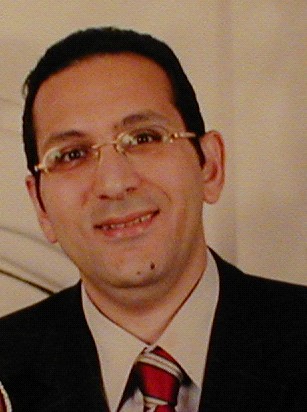|
| Biography |
| |
 Education:
Education:
1-Bachelor of medicine and surgery, Ain Shams University, Cairo/ 1989.
2-Masters degree in internal medicine, Cairo university 1995
3-Marketing diploma, American university of Cairo 1998
4-Master of business administration /Arab Academy of science and technology, Cairo ,2000
5-Masters degree in Algeology (chronic pain management), national cancer institute, Cairo , Egypt 2003.
Career:
1-2003 till currently: regional medical director of NovoNordisk Africa and Gulf region
2-1999-2002: Medical director of Janssen Cilag Egypt
3-1996-1998: biotechnology business unit manager for Janssen Cilag Egypt
4-1995: Biotechnology product manager/ Janssen Cilag Egypt
5-1994: Clinical research associate / Cilag Ag international
6-1990-1993: resident doctor in intensive care unit of national diabetes institute and national heart institute of Cairo
|
| |
|
|
| |
| Abstract |
| |
|
Role of the Paramedical health worker in prevention and care of diabetes |
|
|
|
Diabetes mellitus is emerging as a major health care problem , Increased longevity , coupled with rapid urbanization and changes from traditional lifestyles, will most likely trigger a diabetes epidemic estimated to affect 300 million capita by year 2025. Diabetes is the main cause of kidney failure, limb amputation, and new-onset blindness. People with diabetes are also two to four times more likely than people without diabetes to develop heart disease.
Paramedical health workers can play a substantial role in lowering the risk of development and or progress of type 2 diabetes ,
Screening and consequently early identification programs coupled with education on life style modification were proven to substantially lower the prevalence of diabetes amongst the risk groups..
Education of diabetics can optimize control ,reduce complications ,increase life expectancy and lowers total health care costs,
Simple measures like patient education and awareness about foot problems can bring about a remarkable reduction in amputation rates.
A focus on regular screening and early monitoring for complications is worthwhile Detection and treatment of diabetic eye disease in both the US and Scandinavia is not only cost effective, but is actually cost saving. Potential savings in the USA exceed $600 million, early detection of nephropathy by screening for micro albuminuria and immediate recourse to improved control with anti-Hypertensive medication, not only increases life expectancy significantly but also at the same time reduces total health care costs.
Similarly simple foot examination can help avoiding most of unwanted amputations. |
|
| |
|